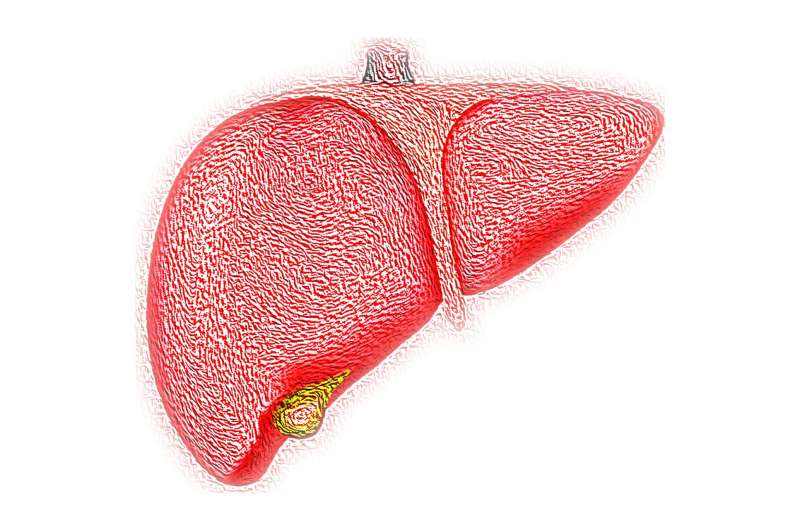This article has been reviewed according to Science X's editorial process and policies. Editors have highlighted the following attributes while ensuring the content's credibility:
fact-checked
peer-reviewed publication
proofread
Team performs the first gene therapy tests in a whole human liver

In a worldwide first-of-its-kind study published in the journal Nature Communications this week, a team of scientists from Children's Medical Research Institute (CMRI) have tested novel gene therapies in a whole human liver, with the goal of developing more effective treatments for life-threatening inherited diseases.
Gene therapy is a revolutionary approach to treating serious genetic diseases that most commonly involves replacing or repairing a faulty gene. The most efficient delivery systems today are those based on a harmless virus named adeno-associated virus (AAV) that has a natural ability to carry genetic information into human cells.
One of the biggest problems that researchers are facing on their journey to bringing gene therapies from the lab bench to the clinic, is the lack of access to effective preclinical models that can be used to develop and test the new therapies—such as laboratory tests that are biologically relevant and clinically predictive before a therapy can be trialed in patients. It is vital that these models faithfully reproduce human physiological conditions and intricate tissue organization, so they can accurately predict the outcome when the therapy is administered to a patient.
Last year, CMRI's Translational Vectorology Research Unit collaborated on a study, with a team at Royal Prince Alfred Hospital, to establish a new method of keeping a human liver alive in a lab setting. Livers that were not suitable for human transplantation—and would have previously been discarded or kept on ice for research—can now be preserved outside the body at human body temperature, enabling cutting-edge biomedical research.
This is called a normothermic liver perfusion system.
The CMRI team has now demonstrated the potential of using this system to test AAV-based therapeutics prior to initiation of clinical studies. The use of the whole human liver is a revolutionary advance in the field of gene therapy as it allows researchers to accurately test how the new therapeutics would affect a major organ, the liver—something that could not be done before.
"This is very exciting for us because now, for the first time, we can assess the function of gene therapeutics directly in the clinical target organ itself—the human liver," said Associate Professor Leszek Lisowski, the senior author on this publication.
"This is important because the current generation of viral vectors we use to deliver gene therapeutics to the liver are not good enough for the majority of clinical applications. At the moment we often have to use these therapies in high doses to overcome their functional inefficiencies and achieve clinical benefit. Up to now the gene therapy delivery tools have been tested in animal models, which while invaluable to evaluate safety and targeting of other organs/tissues, do not adequately replicate the functionality of these delivery methods in the patient," he added.
"Together, this work broadens the repertoire of preclinical models available for conducting liver-directed vector studies and allows us to minimize the use of animals. Ideally this will bring us closer to more efficient gene therapies for diseases that currently have limited, if any, treatments,."
Associate Professor Lisowski said that this new advanced model of human liver will not only be a game-changer when performing functional evaluation of novel therapeutics, but it will also allow to more accurately estimate the effective dose of new therapeutics and identify potential toxic side effects. It will also be a powerful system for developing novel fit-for-purpose viral vectors that will form the basis of next-generation advanced therapies.
More information: Harnessing whole human liver ex situ normothermic perfusion for preclinical AAV vector evaluation, Nature Communications (2024).





















